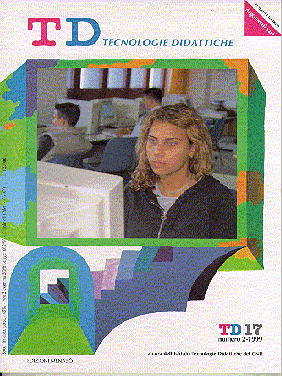Browse by hypertext: an experimental training course in networked thinking in elementary school
Main Article Content
Abstract
Article Details
Section
Authors who publish with this journal agree to the following terms:
- Authors retain copyright and grant the journal right of first publication with the work simultaneously licensed under a Creative Commons CC BY 4.0 Attribution 4.0 International License.
- Authors are able to enter into separate, additional contractual arrangements for the non-exclusive distribution of the journal's published version of the work (e.g., post it to an institutional repository or publish it in a book), with an acknowledgement of its initial publication in this journal.
- Authors are permitted and encouraged to post their work online (e.g., in institutional repositories or on their website) prior to and during the submission process, as it can lead to productive exchanges, as well as earlier and greater citation of published work (See The Effect of Open Access)
References
Antonietti A. (1998), Psicologia dell’apprendimento. Processi, strategie e ambienti cognitivi, La Scuola, Brescia.
Bernstein M., Joyce M., Levine D. (1992), Contours of constructive hypertexts, in Lucarella D., Nanard J., Paolini P., (eds) Proceedings of the Fourth ACM Conference on hypertext, ACM Press, New York, 161-170.
Edwards D. W., Hardmann L. (1989), Lost in hyperspace: cognitive mapping and navigation in a hypertext environment, in McAleese R., (ed.) Hypertext: theory into practice, Intellect Books, Oxford, 105- 125.
Foss C. L. (1989), Tools for reading and browsing hypertext. Information Processing Manage, vol.25 (4), 407-418.
Gray S. (1990), Using protocol analyses and drawings to study mental model construction during hypertext navigation, International Journal of Human-Computer Interaction, vol.2 (4), 359-377.
Hammond N., Allison L. (1987), The travel metaphor as design principle and training aid for navigation around complex systems, in Diaper D., Winder R., (eds.) People and computers III: Procedings of the third conference of the British Computer Society Human- Computer Interaction Specialist-Group, Cambridge University Press, Cambridge, pp. 75-90.
Rouet J. F. (1996), Hypertext and cognition, Lawerence Erlbaum Associates, Mahawah.

